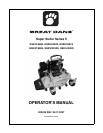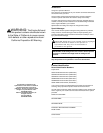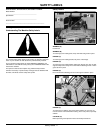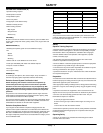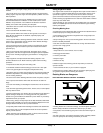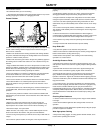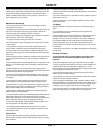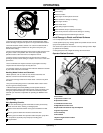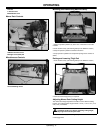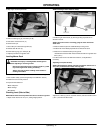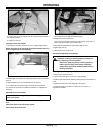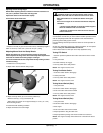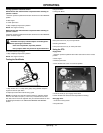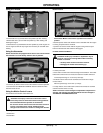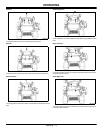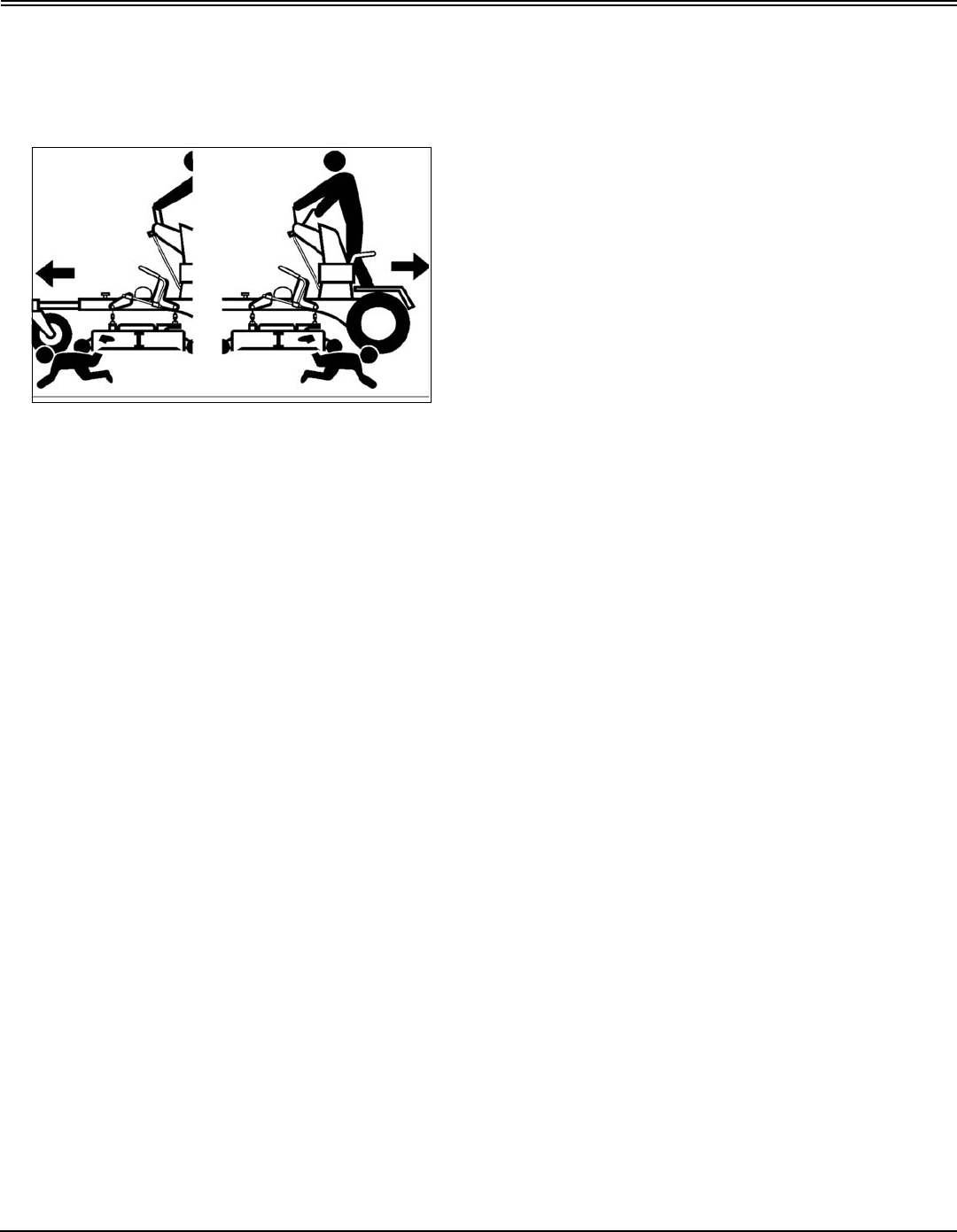
Safety - 5
SAFETY
• Do not mow in reverse.
• Shut off blades when you are not mowing.
• • Park machine safely before leaving the operator station for any reason
including emptying the catchers or unplugging the chute.
Protect Children
c
MX18014
• Death or serious injury can occur when young children associate having
fun with a lawn mowing machine simply because someone has given
them a ride on a machine.
• Children are attracted to lawn mowing machines and mowing activities.
They don’t understand the dangers of rotating blades or the fact that the
operator is unaware of their presence.
• Children who have been given rides in the past may suddenly appear in
the mowing area for another ride and be run over or backed over by the
machine.
• Tragic accidents with children can occur if the operator is not alert to the
presence of children, especially when a child approaches a machine from
behind. Before and while backing up, stop mower blades and look down
and behind the machine carefully, especially for children.
• Never carry children on a machine or attachment, even with the blades
off. Do not tow children in a cart or trailer. They can fall off and be
seriously injured or interfere with safe machine operation.
• Never use the machine as a recreational vehicle or to entertain children.
• Never allow children or an untrained person operate the machine.
Instruct all operators not to give children a ride on the machine or in an
attachment.
• Keep children indoors, out of the mowing area, and in the watchful eye of
a responsible adult, other than the operator, when a mower is being
operated.
• Stay alert to the presence of children. Never assume that children will
remain where you last saw them. Turn the machine off if a child enters the
work area.
Avoid Tipping
• Slopes are a major factor related to loss-of-control and tip-over
accidents, which can result in severe injury or death. Operation on all
slopes requires extra caution. Never mow on inclines exceeding 15
°.
• Mow across slopes, not up and down.
• Watch for holes, ruts, bumps, rocks, or other hidden objects. Uneven
terrain could overturn the machine. Tall grass can hide obstacles.
• Choose a low ground speed so you will not have to stop or shift while on
a slope.
• Do not mow or operate machine on wet grass. Tires may lose traction. • •
• Tires may lose traction on slopes even though the brakes are functioning
properly.
• Avoid starting, stopping or turning on a slope. If the tires lose traction,
disengage the blades and proceed slowly, straight down the slope.
• Keep all movement on slopes slow and gradual. Do not make sudden
changes in speed or direction, which could cause the machine to roll over.
• Use extra care while operating machine with grasscatchers or other
attachments, they can affect stability of the machine. Do not use on steep
slopes.
• Do not mow near drop-offs, ditches, embankments, or bodies of water.
The machine could suddenly roll over if a wheel goes over the edge or the
edge caves in.
• Follow the manufacturer’s recommendations for wheel weights or
counterweights for added stability when operating on slopes or using front
or rear mounted attachments. Remove weights when not required.
• Drive machine very slowly and avoid quick stops when attachment is
removed.
• Transport machine with decks lowered to improve stability.
Keep Riders Off
• Only allow the operator on the machine. Keep riders off.
• Riders on the machine or attachment may be struck by foreign objects or
thrown off the machine causing serious injury.
• Riders obstruct the operator’s view resulting in the machine being
operated in an unsafe manner.
Avoid High Pressure Fluids
• Hydraulic hoses and lines can fail due to physical damage, kinks, age,
and exposure. Check hoses and lines regularly. Replace damaged hoses
and lines.
• Hydraulic fluid connections can loosen due to physical damage and
vibration. Check connections regularly. Tighten loose connections.
• Escaping fluid under pressure can penetrate the skin causing serious
injury. Avoid the hazard by relieving pressure before disconnecting
hydraulic or other lines. Tighten all connections before applying pressure.
• Search for leaks with a piece of cardboard. Protect hands and body from
high pressure fluids.
• If an accident occurs, see a doctor immediately. Any fluid injected into
the skin must be surgically removed within a few hours or gangrene may
result. Doctors unfamiliar with this type of injury should reference a
knowledgeable medical source. Such information is available from Deere
& Company Medical Department in Moline, Illinois, U.S.A. Information
may be obtained in the United States and Canada only by calling 1-800-
822-8262.
Checking Wheel Hardware
• A serious accident could occur causing serious injury if wheel hardware
is not tight.
• Check wheel hardware tightness often during the first 100 hours of
operation.
• Wheel hardware must be tightened to specified torque using the proper
procedure anytime it is loosened.
Wear Appropriate Clothing
• Always wear safety goggles, or safety glasses with side shields, and a
hard hat when operating the machine.
c



